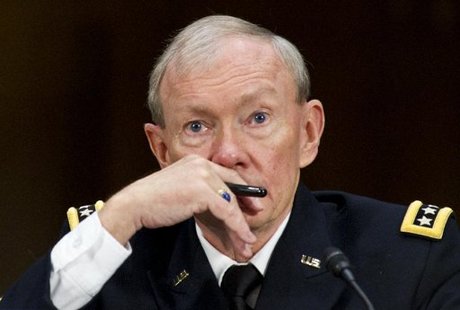U.S. General: Iran Strikes Would only Delay Nuclear Program
إقرأ هذا الخبر بالعربية
Air strikes on Iran would set back but not destroy its nuclear capabilities, the top U.S. military leader said Thursday, with a deadline looming for a deal between Tehran and major powers.
Iran and the P5+1 group (the United States, Britain, China, France, Russia and Germany) have set a November 24 deadline for a historic accord curbing the Islamic republic's nuclear energy program after a decade of on-off negotiations.
The West accuses Iran of seeking to develop the nuclear weapons under the guise of a peaceful civilian energy program.
Israel in the past has raised the threat of military action to prevent Iran from getting the bomb, while Washington has left its options open.
"We do have the capability -- were we asked to use it -- to address an Iranian nuclear capability," said General Martin Dempsey, chairman of the Joint Chief of Staff.
"But... as we look at using the military instrument if necessary to address the Iranian nuclear issue, that would delay it, it will not eliminate it," he told a forum at the Carnegie Endowment for International Peace.
The United States and Iran broke off diplomatic ties in 1980, but the two sides have both engaged in the multilateral negotiations over Tehran's nuclear program.
Top U.S. diplomat John Kerry and Iranian Foreign Minister Mohammad Javad Zarif are due to meet in Oman over the weekend in talks hosted by European Union foreign affairs chief Catherine Ashton.
A final session of talks is then due to take place in Vienna from November 18-24, and Kerry has stressed that the deadline would not be extended.
"What really makes the nuclear capability of Iran an issue, is not centrifuges and ballistic missiles but rather the human capital that has the expertise to regenerate it," Dempsey explained.
"We do have the capability to delay their nuclear enterprise by some number of years, which I won't obviously articulate here."



